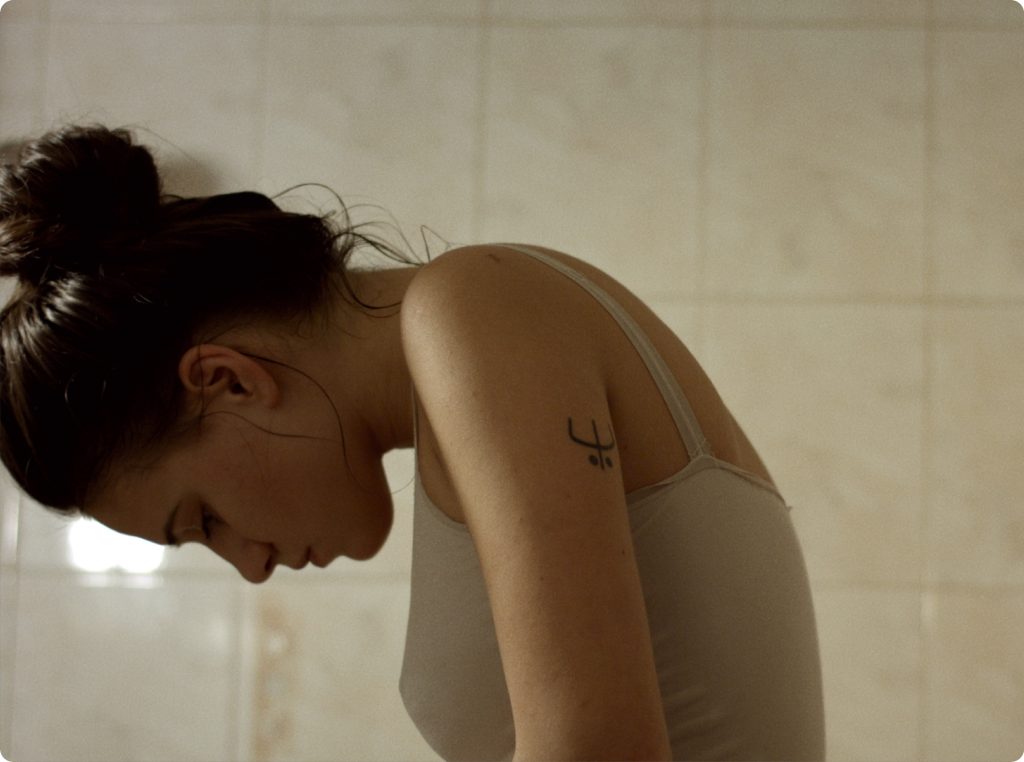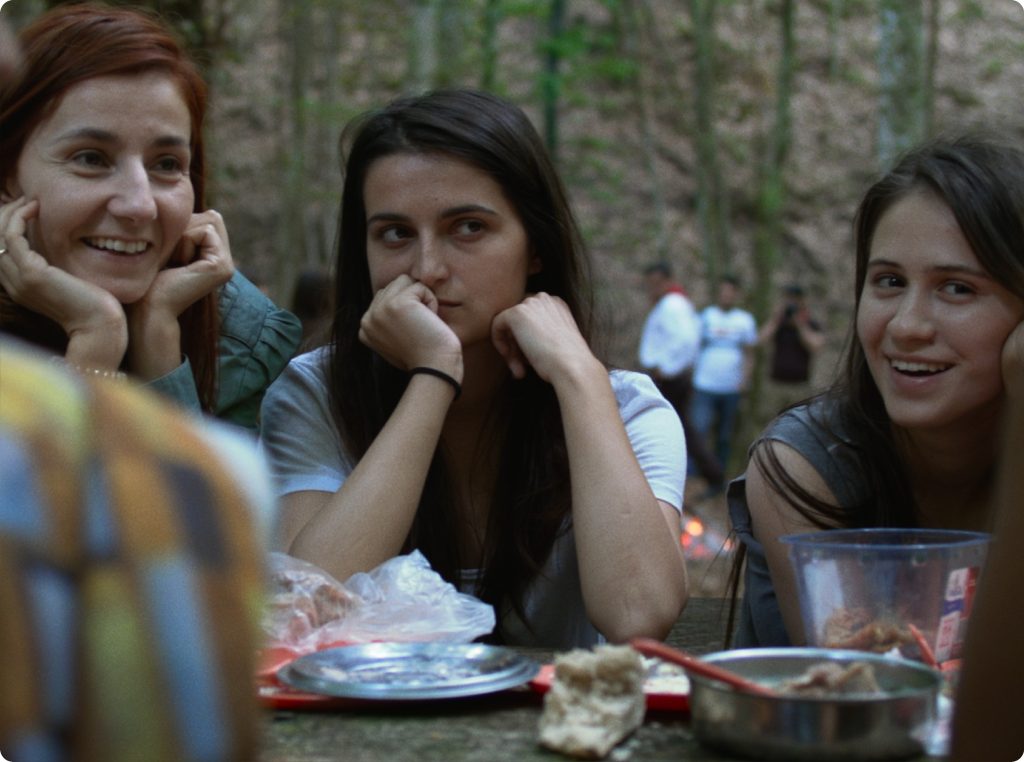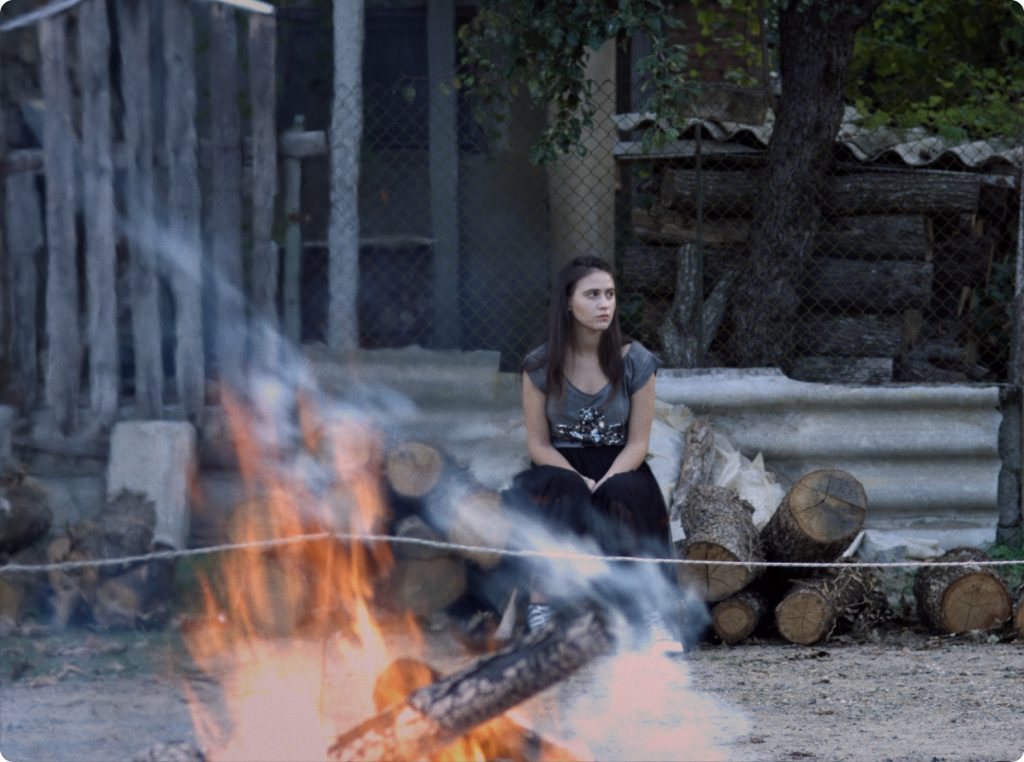After a festival run beginning at Cannes last year, Bulgarian-French co-production Women Do Cry (2022) arrives at SXSW on March 12th. Academy-Award nominee Maria Bakalova (of Borat fame) sat down with GVN alongside writer-directors Vesela Kazakova and Mina Mileva to talk about the new film.
Bakalova plays a young woman, Sonja, whose life is hugely disrupted when she discovers her lover is married, has children, and has HIV. Sonja’s subsequent diagnosis sends her into a deep spiral that her family must attempt to help her out of. In doing so, it navigates complex and highly conservative gender dynamics in the film’s setting of Bulgaria.
“It needed to be said,” Kazakova said of the film. With it, she and Mileva wanted to accurately depict the experience of women in film, something she says is very rarely accurately represented. “We wanted to dig deeper into the female psyche, and [the] numerous responsibilities [of women],” which she says are often “very invisible and swept under the carpet.”

Mileva added that it was important for them to highlight women’s issues that are not often portrayed in film, such as postpartum depression and HIV. She noted that though there are films that depict the experience of having HIV, they very rarely feature women. Bakalova added that she had been talking to friends who hadn’t even realized women could get HIV: “we’ve been talking about HIV awareness for a long time, but somehow still people don’t really realize that women are also exposed to that and how women are handling it.”
A large part of Sonja’s journey throughout the film relies on her relationships with family, especially her sister Lora (Ralitsa Stoyanova). The pair have a traditional if not slightly exaggerated sibling dynamic defined by routine superficial arguments that occasionally get mildly physical. As the film progresses and Sonja’s mental health declines, that relationship continues to be fruitful material for the writers and actors to explore. Bakalova said that despite all the fighting, their relationship was incredibly caring: “at the end of the day, we are going to go to the hospital, I’m going to hold your hand, we’re going to go through this together.”
Bakalova said that she felt very close to the film after working on it for over two years, and reflected on how “sentimental all of [her] parts are for her.” She said that “they’re human beings that you create…. I feel dependent on what is happening with these people that you create.”

She also referred several times to the closeness between cast and crew members that emerged over the course of production: “we truly became a family, every single person.” She even said that the team broke a few rules: “some of the places that we were going, we weren’t really allowed to go. So we had to sneak here and there. Everybody was doing as much as possible to make it happen, which was unique and very inspiring, because it was dedication.”
Kazakova spoke highly of Bakalova’s hard work in production: “Maria… always takes it very seriously.” She even joked that her commitment to the part was so intense that they thought she may actually test positive for HIV after the shoot.
The film closes with a line of text that reads “in tribute to our mothers.” I asked the three women about how their mothers impacted their making of this film. Mileva replied: “we have our feminist mothers,” and cites the way she was brought up as a large inspiration for her own beliefs and actions. Bakalova added that “women from Eastern Europe [are] probably the strongest women alive because they literally have to fight the system even more, because the patriarchy still exists in these places. And that’s why, probably, from my point of view, Mina and Vesela wanted to pay tribute to our mothers because Eastern European Bulgarian women are strong women that will overcome anything.”
Speaking on the cultural specificity of the film’s setting, Kazakova said that it was important to them that Americans “get a different impression from our part of the world.” That said, she acknowledges that the experiences of the women portrayed in the movie are “unique, at the same time universal. No matter where we show the film, it touches something which every woman, and also men, is going through.”
Women Do Cry is playing in the in the Global Presented By MUBI section of SXSW 2022.
Before we let you go, we have officially launched our merch store! Check out all of our amazing apparel when you click here and type in GVN15 at checkout for a 15% discount!
Make sure to check out our podcasts each week including Geek Vibes Live, Top 10 with Tia, Wrestling Geeks Alliance and more! For major deals and money off on Amazon, make sure to use our affiliate link!

Emmy is a big fan of all things TV and movies. Among her current favorites are The Matrix, Midsommar, Titane, and Fleabag. Catch her on Letterboxd @ewenstrup !







